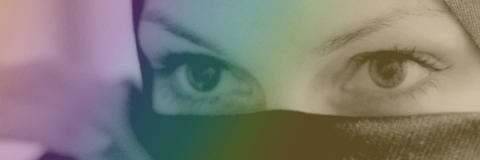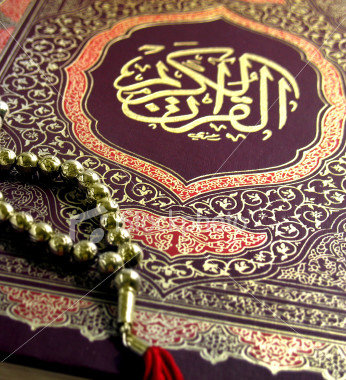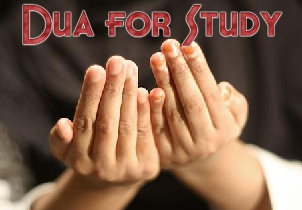Posts Tagged ‘Hijab is a Woman’s Real Beauty!’
- In: All | Allah الله | HIJAB | Islam | MC-Women | Women In Islam
- 30 Comments

10 beautiful aspects of an Ideal Muslimah

1. Her Obedience to the Creator:
A practicing Muslim man loves to have a practicing Muslim wife; who knows that the life of this world is nothing but a test from her Lord; giving her an opportunity to come closer and closer to Allah, doing more and more good deeds to please Him Azza wa jal, restricting herself from the desires of her inner self that go against the will of her Creator.
But as for him who feared standing before his Lord, and restrained himself from impure evil desires, and lusts. Verily, Paradise will be his abode. (Surah An- Naaziyaat: 40-41)
2. Her Haya (Modesty/Shyness):

Haya is one of the most significant factors of a woman’s personality. Haya according to a believer’s nature refers to a bad and uneasy feeling accompanied by embarrassment, caused by one’s fear of being exposed or censured for some unworthy or indecent conduct.
Prophet Sallallahu alaihiwasallam said: “Haya comes from Eman; Eman leads to Paradise. Obscenity comes from antipathy; and antipathy leads to the fire.” (Sahih Al-Bukhari)
A Muslim woman feels shy to do
anything that would displease her Lord in any aspect. She has haya in her talk, she has haya in her gaze, she has haya in her clothing, she has haya in her walk. Her haya in her talk is that she is not soft in her speech but speaks honorably. Allah subhanahu wa ta’ala says (interpretation of the meaning):
“O wives of the Prophet! You are not like any other women. If you keep your duty (to Allah), then be not soft in speech, lest he in whose heart is a disease (of hypocrisy, or evil desire for adultery) should be moved with desire, but speak in an honorable manner” (Surah Al-Ahzaab:32)
Her haya in her gaze is that she does not look at what Allah subhanahu wa ta’ala has prohibited for her to look. Allah subhanahu wa ta’ala says (interpretation of the meaning):
And tell the believing women to lower their gaze (from looking at forbidden things), and protect their private parts (from illegal sexual acts)… (Verse continues) (Surah An-Nur: 31)
Her haya in her clothing is that she does not reveal to others what Allah subhanahu wa ta’ala has forbidden for her to reveal. Allah subhanahu wa ta’ala says (interpretation of the meaning):
…And not to show off their adornment except only that which is apparent (like both eyes for necessity to see the way or outer dress like veil, gloves, head-cover, apron, etc.), and to draw their veils all over Juyubihinna (i.e. their bodies, faces, necks and bosoms,) and not to reveal their adornment except to their husbands, or their fathers, or their husband’s fathers, or their sons, or their husband’s sons, or their brothers or their brother’s sons, or their sister’s sons, or their (Muslim) women (i.e. their sisters in Islâm), or the (female) slaves whom their right hands possess, or old male servants who lack vigor, or small children who have no sense of the feminine sex.. (Verse Continues) (Surah An-Nur: 31)
Her haya in her walk is that she walks modestly without attracting others attention towards herself. Allah subhanahu wa ta’ala says (interpretation of the meaning):
..And let them not stamp their feet so as to reveal what they hide of their adornment. And all of you beg Allâh to forgive you all, O believers, that you may be successful. (Surah An-Nur: 31)
Abu Usayd al-Ansa
ri narrated that he heard Allah’s Messenger Sallallahu alaihiwasallam say to the women on his way out of the mosque when he saw men and women mixing together on their way home: ‘Give way (i.e., walk to the sides) as it is not appropriate for you to walk in the middle of the road.’ Thereafter, women would walk so close to the wall that their dresses would get caught on it. (Narrated by Abu Dawood in “Kitab al-Adab min Sunanihi, Chapter: Mashyu an-Nisa Ma’ ar-Rijal fi at-Tariq)
A woman who has the knowledge of Allah’s commandment to preserve her modesty, submitting herself to the will of her creator, even after having the desire to be praised for her beauty, is without doubt beloved to Allah subhanahu wa ta’ala and as well as to all good believing men.
3. Her Beauty:
Allah subhanahu wa ta’ala made women beautiful in the sight of men. It’s just that some human beings are more attracted towards some than others.
Aishah RadhiyAllahu anha said: “I heard the Prophet Sallallahu alaihiwasallam saying: ‘Souls are like conscripted soldiers; those whom they recognize, they get along with, and those whom they do not recognize, they will not get along with.’” (Sahih Al-Bukhari)
Al-Qurtubi said: “Although they are all souls, they differ in different ways, so a person will feel an affinity with souls of one kind, and will get along with them because of the special quality that they have in common. So we notice that people of all types will get along with those with whom they share an affinity, and will keep away from those who are of other types. [This is like the old saying goes, “Birds of a feather flock together”] For a believing man, a Muslim woman’s beauty is not just how her nose looks or how big her eyes are, but her modesty, purity of heart, and innocence make her look beautiful as well. Also Allah subhanahu wa ta’ala makes people whom He loves, pleasing to others.
“When Allah loves someone he calls to Jibreel Alaihissalaam saying, ‘O Jibreel, I love such and such a person, so love him.’ Then Jibreel will call to the (angels) of the heavens, ‘Allah loves such and such a person so love him.’ And the angels will love [that person]. And then Allah will place the pleasure in the hearts of the people towards this person.” (Sahih Al-Bukhari and Muslim)
4. Her Intellect/playfulness:
Intellect and playfulness are two qualities of women highly liked by men. Every man likes to have an intelligent wife who can advise and support him in day to day matters. Khadija bint Khuwaylid RadhiyAllahu anha was one of the most beloved wives of Prophet (peace and blessings of Allah be upon him). She supported Allah’s messenger (peace and blessings of Allah be upon him) at the very beginning of his Prophethood when Jibreel alaihissalaam brought the first revelation to him. Prophet (peace and blessings of Allah be upon him) always admired her and remembered her even long after her death. A playful wife is a joy and pleasure to a man’s heart. Prophet Sallallahu alaihiwasallam recommended Jabir bin ‘Abdullah to marry a virgin so that the two could play with each other and amuse each other. Narrated Jabir bin ‘Abdullah: “My father died and left seven or nine girls and I married a matron.
Allah’s Apostle said to me, “O Jabir! Have you married?” I said, “Yes.” He said, “A virgin or a matron?” I replied, “A matron.” he said, “Why not a virgin, so that you might play with her and she with you, and you might amuse her and she amuse you.” (Hadith continued) (Sahih Al- Bukhari)
5. Her Truthfulness:
Being truthful and honest is an essential quality of a believer. ‘Abdullah ibn Mas’ood RadhiyAllahu anh said:
The Messenger of Allah Sallallahu alaihiwasallam said: “I urge you to be truthful, for truthfulness leads to righteousness, and righteousness leads to Paradise. A man will continue to be truthful and seek to speak the truth until he is recorded with Allah as speaker of truth (Siddeeq). And beware of lying, for lying leads to immorality and immorality leads to Hell; a man will continue to tell lies until he is recorded with Allah as a liar.” (Sahih Al-Bukhari and Muslim)
A person who is known to lie repeatedly loses his trust. And if that happens in case of a marital relationship the whole relationship falls apart. A woman who is known to be a “Siddeeqah” certainly has a higher status in a Muslim man’s heart.
6. Her Obedience:
Allah Subhanahu wa ta’ala made man protector and maintainer of the woman and enjoined upon her to obey him in all the matters that do not go against Quran and Sunnah. Allah subhanahu wa ta’ala says (interpretation of the meaning):
“Men are the protectors and maintainers of women, because Allah has made one of them to excel the other, and because they spend (to support them) from their means” (Surah An-Nisa’: 34)
The Messenger of Allah Sallallahu alaihiwasallam said, “The best women is she who when you look at her, she pleases you, when you command her she obeys you, and when you are absent, she protects her honor and your property.” (At-Tabarani, Ibn Majah)
7. Her Patience:
Patience is a characteristic that can never be praised enough. A woman who remains patient at the times of hardship and relies on the help and mercy of Allah is without a doubt a beloved servant of Allah subhanahu wa ta’ala. Allah says (interpretation of the meaning):
“And Allah loves As-Saabiroon (the patient)” (Surah Aal Imran: 146)
8. Her Cooking:
Delicious food is without a doubt weakness of men. It’s an old saying that “The Way to a Man’s Heart is through his Stomach”. We also know that one of Prophet’s (Sallallahu alaihiwasallam) wives used to cook food that he liked a lot and due to that Aishah radhiyAllahu anha would get jealous, because she didn’t know how to cook that.
9. Her Contentment with Rizq:
No man likes to have a woman who is always complaining about how less her husband earns or how rich her other friends are. A good Muslimah is the one who thank Allah for what He has blessed her with and she is thankful to her husband for what he provides her with. Abu Hurairah RadhiyAllahu anh reported:
The Prophet Sallallahu alaihiwasallam said, “Richness is not the abundance of wealth, rather it is self-sufficiency.” (Sahih Al-Bukhari and Muslim)
10. Good Manners:
A woman of good manners is a blessing from Allah subhanahu wa ta’ala. When she speaks, she speaks honorably, why she deals with others she deals with them kindly. She is polite with elders, loving to children, and good to her fellow folks. It is related by ‘Abdullah bin Amr that the Prophet Sallallahu alaihiwasallam said:
“The best of you are those who possess the best of manners.” (Sahih Al-Bukhari and Muslim)


 [post this Article on your facebook wall,and share with friends.click above “Share” button …]
[post this Article on your facebook wall,and share with friends.click above “Share” button …]


[where ever you post,please add source link.either in website or even in facebook NOTE…please….spread the link of site..]

![]() Note:I’d love to see who visit my website,your views about website. Click here to leave your feedback.
Note:I’d love to see who visit my website,your views about website. Click here to leave your feedback.

- In: All | HIJAB | Islam | MC-Women | Miss-Conception | Women In Islam
- 2 Comments

Why Hijab? It’s Virtues, Beauty and Obligation

Some Sisters do not truly know the excellence and virtue of Hijab, they feel envious of non-Muslim women. Because they see them looking ‘beautiful’ for all to see. Hence, the Muslim woman then compares herself with them and feels ‘ashamed’ of her own Hijab.
This is, therefore, a reminder to our sisters about the superiority of Hijab. It is a reminder that Hijab will always reign supreme and that a true Muslim man will forever be dazzled by the beauty of the Muhijabah (woman who wears the Hijab).
Allah SWT said
And say to the believing women that they should lower their gaze and guard their modesty; that they should not display their beauty and ornaments except what ordinarily appear thereof; that they should draw their veils over their bosoms….” (Qur’an 24:30-31)
Hijab is:
1. Act of obedience
The Hijab is an act of obedience to Allah and to his Prophet (peace be upon him), Allah says in the Qur’an:
“It is not for a believer, man or woman, when Allah and His messenger have decreed a matter that they should have an option in their decision. And whoever disobeys Allah and His Messenger, has indeed strayed in a plain error.” (Qur’an, 33:36)
After commanding men to lower their gaze, Allah said:
“And tell the believing women to lower their gaze (from looking at forbidden things) and protect their private parts (from illegal sexual acts, etc) and not to show off their adornment except what must (ordinarily) appear thereof, that they should draw their veils over their Juyubihinna.” (Qur’an, 24:31)
2. Modesty
Allah made the adherence to the Hijab a manifestation for chastity and modesty. Allah says:
“O Prophet! Tell your wives and your daughters and the women of the believers to draw their cloaks (veils) over their bodies (when outdoors). That is most convenient that they should be known and not molested.” (Qur’an, 33:59).
In this verse there is an evidence that public display of a woman’s beauty is harmful to her. When the cause of attraction ends, the restriction is removed. This is illustrated in the case of elderly women who may have lost every aspect of attraction. Allah made it permissible for them to lay aside their outer garments reminding, however, that is still better for them to keep their modesty.
O’ My sisters in faith!
Hijab is Allah’s protection of your natural beauty. You are too precious to be “on display” for each man to see. It is Allaah’s preservation of your chastity.Allah purifies your heart and mind through the hijaab. Allah beautifies your inner and outer countenance with hijaab.
3. Purity and honor
Hijaab reflects innocence, purity, modesty, shyness, serenity, contentment and obedience to your Lord.
O’ Muslimah !Hijab defines your femininity You are a woman who respects her womanhood. Allah wants you to be respected by others, and for you to respect yourself.
Hijab raises your dignity. When a strange man looks at you, he respects you because he sees that you respect yourself.
Allah revealed us the Hikma (wisdom) behind the legislation of the Hijab:
“And when you ask them (the Prophet’s wives) for anything you want, ask them from behind a screen, that is purer for your hearts and their hearts.” (Qur’an, 33:53)
The Hijab seeks greater purity for the hearts of believing men and women, because it screens the desires. Hijab blocks the sight, prevents Fitna and minimizes the chances of any ill thoughts and greed of sickened hearts.
“…Be not soft in speech, lest he in whose heart is a disease (of hypocrisy or evil desire for adultery, etc) should be moved with desire, but speak in an honorable manner.” (Qur’an, 33:32)
4. Shield
Hijab protects your honour. Men do not gaze at you in a sensual way, they do not approach you in a sensual way, and neither do they speak to you in a sensual way. Rather, a man holds you in high esteem and that is just by one glance at you!
The Prophet (peace be upon him) said:
“Allah, Most High, is Ha’yeii (Bashful), Sit’teer (Shielder). He loves Haya’ (Bashfulness) and Sitr (Shielding; Covering).” The Prophet (peace be upon him) also said: “Any woman who takes off her clothes in other than her husband’s house (to show off for unlawful purposes), has broken Allah’s shield upon her.”
Moreover, the Hijab fits the natural bashfulness as part of the nature of women.
5. Piety
Allah says in the Qur’an:
“O children of Adam! We have bestowed raiment upon you to cover yourselves (screen your private parts, etc) and as an adornment. But the raiment of righteousness, that is better.” (Qur’an, 7:26)
The widespread forms of dresses in the world today are hardly a cover and shield for the woman’s body. For Muslims dress is also an act of Taqwa (righteousness) .
6. Sense of honor
Hijab also protects a man’s Gheerah. A normal man will not like others to gaze at his wife or daughter, because he is protective about them and has that feeling of protective jealousy. Gheerah is the emotion that drives a man to safeguard his womenfolk from strangers. A Muslim man has Gheerah for all Muslim women. But free intermingling of sexes and absence of Hijab destroys the Gheerah in men. Islam considers Gheerah an integral part of faith. The dignity of the wife or daughter or any other Muslim woman must be highly respected and defended.
Hijab proves you Independent
Hijab expresses your independence. You are stating clearly that you are an obedient servant of the Greatest Master. You will obey no one else and follow no other way. You are not a slave to any man, nor a slave to any nation. You are free and independent from all man-made systems.
Hijab never oppress
Rather, Hijab gives you the freedom of movement and expression. You are able to move about and communicate without fear of harassment. Your hijaab gives you a unique confidence.
Allah wants others to treat you – a Muslim woman – with kindness. And the hijaab brings about the best treatment of men towards you.Hijab preserve and save your beauty for just one man to enjoy i.e; your husband.
Hijab helps you to enjoy a successful marriage. Because you reserve your beauty for one man alone, your husband’s love for you increases, he cherishes you more, he respects you more and he honours you more. So your hijaab contributes to a successful and lasting marriage relationship.
Hijab covers the head and NOT the brain, It never abstains you to free and open thinking..
Hijab brings about peace and stability in the society Yes this is true! Men do not cause corruption by forming illegal relationships because you – the Muslim woman – calm their passions. When a man looks at you, he feels at ease, not tempted to fornicate…
So a Muslim woman in hijaab is dignified, not dishonoured, noble, not degraded, liberated, not subjugated, purified, not sullied, independent, not a slave, protected, not exposed, respected, not laughed at, confident, not insecure, obedient, not a sinner, a guarded pearl, not a prostitute…
O Dear Muslim sister!
Come towards the gates of Paradise with us! Fulfill your duties towards Allaah, put on your adornment – put on your hijaab, and race towards Jannah (Paradise) by doing all good actions. You should agree by now that wearing hijaab is extremely beneficial – it must be – because Allaah only commands what is good…
“Their reward is with their Lord: Gardens of Eden underneath which rivers flow wherein they will dwell for ever; Allaah is pleased with them, and they are pleased with Him; this is (in store) for whoever fears his Lord.”[Noble Qur’an 98:8]
May Allah guide all to true path! Ameen!
JazakAllahu Khair for Reading
Composed and written by Prnxess *IM*


[where ever you post,please add source link.either in website or even in facebook NOTE…please….spread the link of site..]

![]() Note:I’d love to see who visit my website,your views about website. Click here to leave your feedback.
Note:I’d love to see who visit my website,your views about website. Click here to leave your feedback.

Safety Tips for Muslim Women
Posted on: April 3, 2009

As Muslims and their institutions become targets of harassment in the wake of the September 11 terrorist attack, Muslim women, especially those who dress Islamically, have become major targets. Reports of Muslim women being yelled at, threatened, having their Hijabs pulled off and having guns pointed at them have surfaced. It is necessary that the whole community rallies to defend Muslim women. But sisters also have to take personal precautions when they go outside. Like it or not, they will be targets.
Here are some safety tips for sisters:
1. Always be aware of your surroundings This applies whether you are travelling alone or in groups. Don’t just focus inwardly on your thoughts if you are alone, or your friends if you are together. Keep one eye out for your environment, looking out for suspicious characters, possible danger, etc. Also, don’t assume that because your area has been “safe” thus far, that it will continue to be so.
2. Travel in groups “There is safety in numbers” is not just a cliché. It’s true. Make a point of travelling together with other sisters, whether it’s on public transportation, on campus, in cars, etc.
3. Change the route you normally travel by. If you’ve taken the same bus,train or highway to get to work or school, change your route. Even if it takes you a little longer, your safety is more important. By changing your route, you can avert possible attacks or harassment from those who know your schedule, method and route of travel well. Please note though that you should avoid short cuts that take you through unfamiliar or unsafe areas.
4. When travelling by public transportation choose the right seat; If you are travelling by bus or train, do not sit on the window seat as you may be “blocked in” by a potential assailant. Always select the seat next to the aisle so that you can quickly leave if necessary. If you are taking public transportation alone after peak hours, sit as close to the driver as possible and/or choose the section of the bus/train that is most crowded. Try to get a seat near the exit as well.
5. If you are driving alone Don’t think that if you are in a car, you’re safe. Windows should be up and doors locked even when driving to avoid unwanted passengers at intersections. When you are walking to your car, always have your keys ready, so that you can quickly get into your car. But don’t just get in right away. Always check your car before entering, especially the back, for any intruders.
6. Never leave your car door unlocked Even if it means for one minute to drop something off in the mailbox that’s a few feet away. Attackers have been known to lie in wait for such an opportunity.
7. Be careful in parking lots Always be alert in parking lots, especially when it’s dark. Ask someone to escort you to your car. Between cars and inside cars, it’s easy for someone to hide and wait until an unalert person comes along.
8. If you are travelling by taxi Always check the identification of the driver (usually located near the visor) and ensure that it matches the driver. Once inside, don’t sit behind the driver as it may be easy for the driver to lock the rear passenger door. Always choose the adjacent seat. In addition, avoid flagging taxis. Always order taxis so the driver can be traced if something happens.
9. Note “safe houses” along your route Mentally note houses at intervals on each route you take that can be used as “safe houses” if you are attacked, such as shops or houses that you know to be occupied by a friend or acquaintance.
10. When you make a call from a phone booth After dialling the number you wish to call always turn around so that you have your back to the phone and may see who or what is coming your way. You will then be able to tell the person to whom you are speaking that you may be in trouble and you may be able to use the weight of the phone as a weapon. The door of a telephone box could be used to wedge in the limbs of the attacker.
11. Do not open the door of your home without checking DO NOT open the door to your home without first checking from a window, peephole or by asking and verifying who it is. Instruct children to do the same.
12. Report any suspicious activity around your home If you see people loitering on the streets near your house, call the police on a non emergency number and report it.
13. Invest in a cell phone This is an invaluable safety device. Keep it with you at all times and keep emergency numbers on it. Also, keep it next to your bed before you go to bed at night.
14. Parking tips: Avoid parking in areas that are not well lit. Where possible, park close to aschool or work entrance or in a parking garage that has an attendant. If you see a suspicious person approaching or hanging around near your parked car, turn around and go back to an area where there are other people. Try to get an escort to your car through the campus or job security or local police.
15. Tell others about your whereabouts: Parents, spouses and friends should know where you are going and when you will be back, so that your absence will be noticed. Arrange a call in system with a friend if you live alone, whereby you call when you arrive home.
16. Trust your instincts: If you are walking somewhere and feel strange or scared, don’t ignore this feeling. Take extra precautions by walking a little faster to get to a more populated or well-lit area or change the route you’ve been driving on.
17. If you think you are being followed, change your route and activity. You can cross the street, change directions, or enter a populated building or store. Do whatever is necessary to avoid being alone with the person who is following you. Inform a police officer or security official about the follower.
18. Attract attention if you are in a dangerous situation. Get others’ to pay attention to what’s happening to you if you are under attack or being harassed. You can alert others by honking a car horn or loudly describing what is happening.
19. NEVER admit that you are alone: If someone calls your home and asks if you are alone, NEVER admit it. Ask who the caller is. If they refuse to identify themselves, calmly hangup. Keep the radio on in the house so that callers will get the impression that others are in the home too. Instruct children to do the same when they pick up the phone.
20. Obscene phone calls: If you receive an obscene call or a crank call, do not talk to the caller. Hang up if the caller doesn’t say anything, or as soon as s/he shouts obscenities. Hang up the phone calmly and do not slam it down. Note down the date and time of the calls. If they are persistent, inform local police.
21. If you are a student: Avoid studying in isolated classrooms in parts of the college campus that are not regularly patrolled by the school’s security officers.
22. In large buildings take the elevator, not the stairwell. Stairwells are usually quiet and dark. Most people take the elevator. But if someone creepy gets on, don’t hesitate to get off at the same time. Or, if someone is already on the elevator who you feel strange about, do not get on and wait for the next elevator.
There, the (only) protection comes from Allah, the True One. He is the Best to reward, and the Best to give success. [Holy Quran 18:44]
Please share this Article with Females,
May Allah make this article helpfull for Sisters in ISLAM !
Ameen!
KING
slave of Allah!













































 Oh Allah,Please Forgive me
Oh Allah,Please Forgive me Ex-Christians-Now Muslim,Alhamdulillah
Ex-Christians-Now Muslim,Alhamdulillah I Love My Prophet Muhammad s.a.w
I Love My Prophet Muhammad s.a.w
















![Fake Grave of Prophet Muhammad [pbuh]](https://islamgreatreligion.files.wordpress.com/2009/07/prophet_muhammad_pbuh_tomb4.jpg)


















Recent Comments